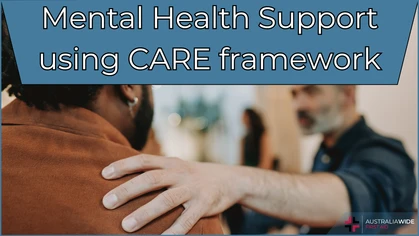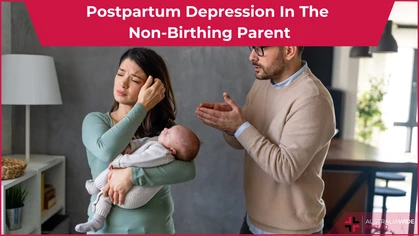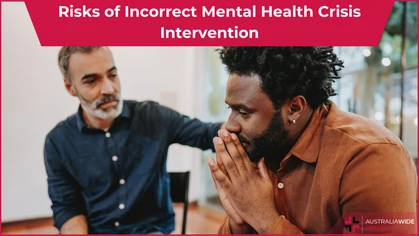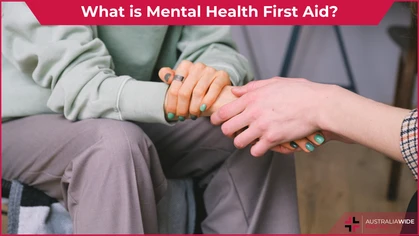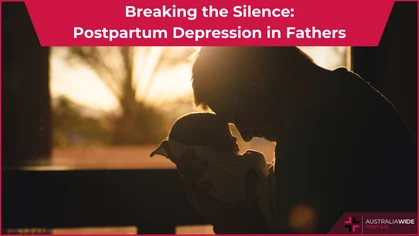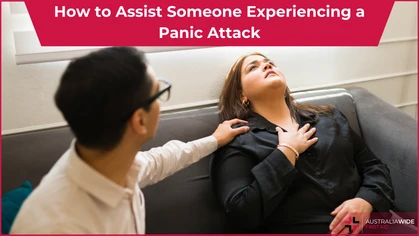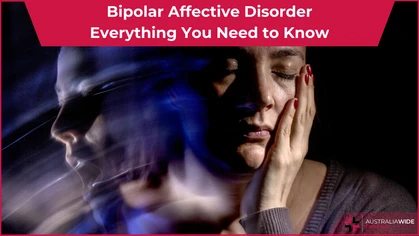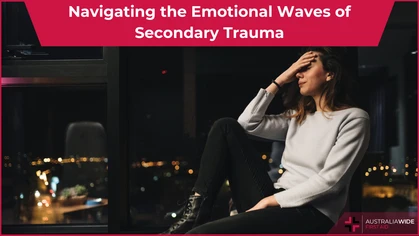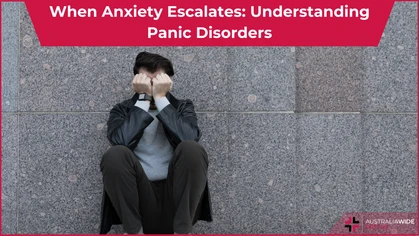Eating disorders and mental health: What you need to know

Mental Health
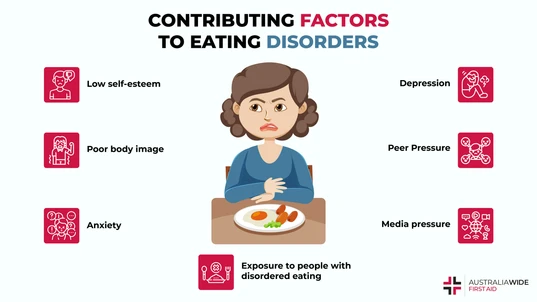
Eating disorders are a type of mental illness wherein the sufferer has distorted ideas about eating and gaining weight. They are most common among young women. It is important to know the causes and symptoms, as eating disorders can be fatal.
Mental health is often viewed as a taboo topic. This is especially true when it comes to mental health issues affecting young people. However, it's important that we don't shy away from these conversations, because they can have a profound impact on our loved ones. In this post, we'll take a closer look at mental health and eating disorders in particular. We'll explore the signs and symptoms of mental health issues related to eating disorders, as well as some ways to support someone who is struggling.What are eating disorders?
Eating disorders are a type of mental illness. They can involve distorted eating habits and an intense fear of gaining weight. Eating disorders can lead to serious physical health problems and even death.Types of Eating Disorders
There are three main types of eating disorder:- Anorexia nervosa – This is characterised by weight loss, a fear of gaining weight and a distorted view of body shape. People with anorexia nervosa may see themselves as overweight even when they are underweight.
- Bulimia nervosa – This is characterised by binge eating followed by purging (for example, making oneself vomit or taking laxatives). People with bulimia nervosa often have a fear of gaining weight and a distorted view of body shape.
- Binge eating disorder – This is characterised by episodes of binge eating followed by feelings of shame, guilt or anxiety. People with binge eating disorder often have a fear of not being able to stop eating once they start.
Factors for Developing Eating Disorders
The exact cause of eating disorders is unknown. However, they are thought to be caused by a combination of biological, psychological and social factors.- Biological factors may include a genetic predisposition or a medical condition that affects eating.
- Psychological factors may include low self-esteem, poor body image, anxiety or depression.
- Social factors may include pressure to be thin from the media, friends or family members.
Signs and Symptoms
The signs and symptoms of eating disorders can vary depending on the type of disorder.- Anorexia nervosa – The main symptom of anorexia nervosa is weight loss. Other symptoms may include a fear of gaining weight, a distorted view of body shape, obsessively counting calories, excessive exercise and skipping meals.
- Bulimia nervosa – The main symptom of bulimia nervosa is binge eating followed by purging. Other symptoms may include a fear of gaining weight, a distorted view of body shape, eating in secret and feeling out of control around food.
- Binge eating disorder – The main symptom of binge eating disorder is episodes of binge eating followed by feelings of shame, guilt or anxiety. Other symptoms may include eating large amounts of food in a short period of time, feeling out of control around food and eating when you’re not hungry.
What are the consequences of eating disorders?
Eating disorders can have serious consequences for physical and mental health. Physical health complications may include:- Weight loss or gain
- Nutritional deficiencies
- Dehydration
- Electrolyte imbalances
- Muscle weakness
- Brittle bones
- Organ damage
- Anxiety
- Depression
- Obsessive thoughts about food and weight
- Disordered eating habits
- Suicidal thoughts or behaviours
How are eating disorders treated?
Eating disorders are complex conditions that require specialist treatment. Treatment may be provided by a team of healthcare professionals including doctors, dietitians, psychologists and psychiatrists. The main types of treatment for eating disorders are:Psychotherapy
This is a type of therapy that involves talking to a therapist about your thoughts, feelings and behaviours. It can help you to understand your eating disorder and develop healthier coping mechanisms.Nutritional counselling
This involves working with a dietitian to develop a healthy eating plan.Medication
This may be prescribed in severe cases to treat underlying mental health conditions such as anxiety or depression.Hospitalisation
This may be required in severe cases where there is a risk of malnutrition or dehydration.How can I prevent an eating disorder?
There is no sure way to prevent an eating disorder. However, there are some things you can do to reduce your risk, such as:- Developing a healthy relationship with food and your body
- Avoiding dieting or crash dieting
- Limiting your exposure to media images of unrealistic body types
- Seeking help early if you or someone you know is showing signs of an eating disorder
Mental Health First Aid Steps for Eating Disorders
Eating disorders are serious mental illnesses with potentially life-threatening consequences. If you think someone you know may have an eating disorder, it is important to seek professional help as soon as possible. You can also provide support to someone with an eating disorder by learning about the condition and how to best provide assistance. Mental health first aid (MHFA) is an internationally recognised training program that teaches members of the public how to provide initial support to someone who may be developing a mental health problem or experiencing a mental health crisis. The MHFA Steps for Eating Disorders can be used to provide support to someone you are concerned about who may be developing an eating disorder or is in the early stages of an eating disorder. The steps are:- Assess the risks: check if the person is in immediate danger and whether they need professional emergency help straight away.
- Listen non-judgmentally: show you care and want to understand what they are going through.
- Encourage action: help the person develop a plan to seek professional help and support their recovery.
- Assist with any crisis: provide practical and emotional support to the person during a crisis.
- Encourage self-help and other support strategies: encourage the person to access helpful resources and support networks.
First Aid for Supporting Eating Disorders
If you are concerned that someone you know is developing an eating disorder or is in the early stages of an eating disorder, you can use the MHFA steps to provide support. These steps can help the person to develop a plan to seek professional help and support their recovery. If the person is in a crisis, you can provide practical and emotional support to help them through this difficult time. You can also encourage self-help and other support strategies, such as accessing helpful resources and support networks. By providing support and encouragement, you can make a difference in the life of someone struggling with an eating disorder. If there is a medical emergency, such as if the person has fainted or is presenting unwell, knowledge from a traditional first aid course, like those offered by Australia Wide First Aid, may be useful. Eating disorders are serious mental illnesses with potentially life-threatening consequences. If you think someone you know may have an eating disorder, it is important to seek professional help as soon as possible. You can also provide support to someone with an eating disorder by learning about the condition and how to best provide assistance. The MHFA Steps for Eating Disorders can be used to provide support to someone you are concerned about who may be developing an eating disorder or is in the early stages of an eating disorder. By providing support and encouragement, you can make a difference in the life of someone struggling with an eating disorder.Additional Resources
For more information on how to develop mental fitness in young people, head to our Resource Library. You will also find tips and tricks for building mental fitness in children, and for rebuilding mental fitness after the COVID-19 pandemic.Mental Health Support
Education is a powerful tool in fostering a society that truly values mental health. Without it, misconceptions and stigma can cloud our understanding, discouraging people from seeking the support they need. Mental health plays an equally vital role as physical health in overall wellbeing. Early recognition of mental ill-health signs and symptoms can ensure that timely help is provided, potentially averting crises. By completing a Mental Health Support Course , you gain the skills and confidence to identify when someone is struggling and provide meaningful support when it matters most.
Originally published at
https://www.australiawidefirstaid.com.au/resources/mental-health-first-aid-for-people-with-eating-disorders
as part of the Australia Wide First Aid Articles Library

